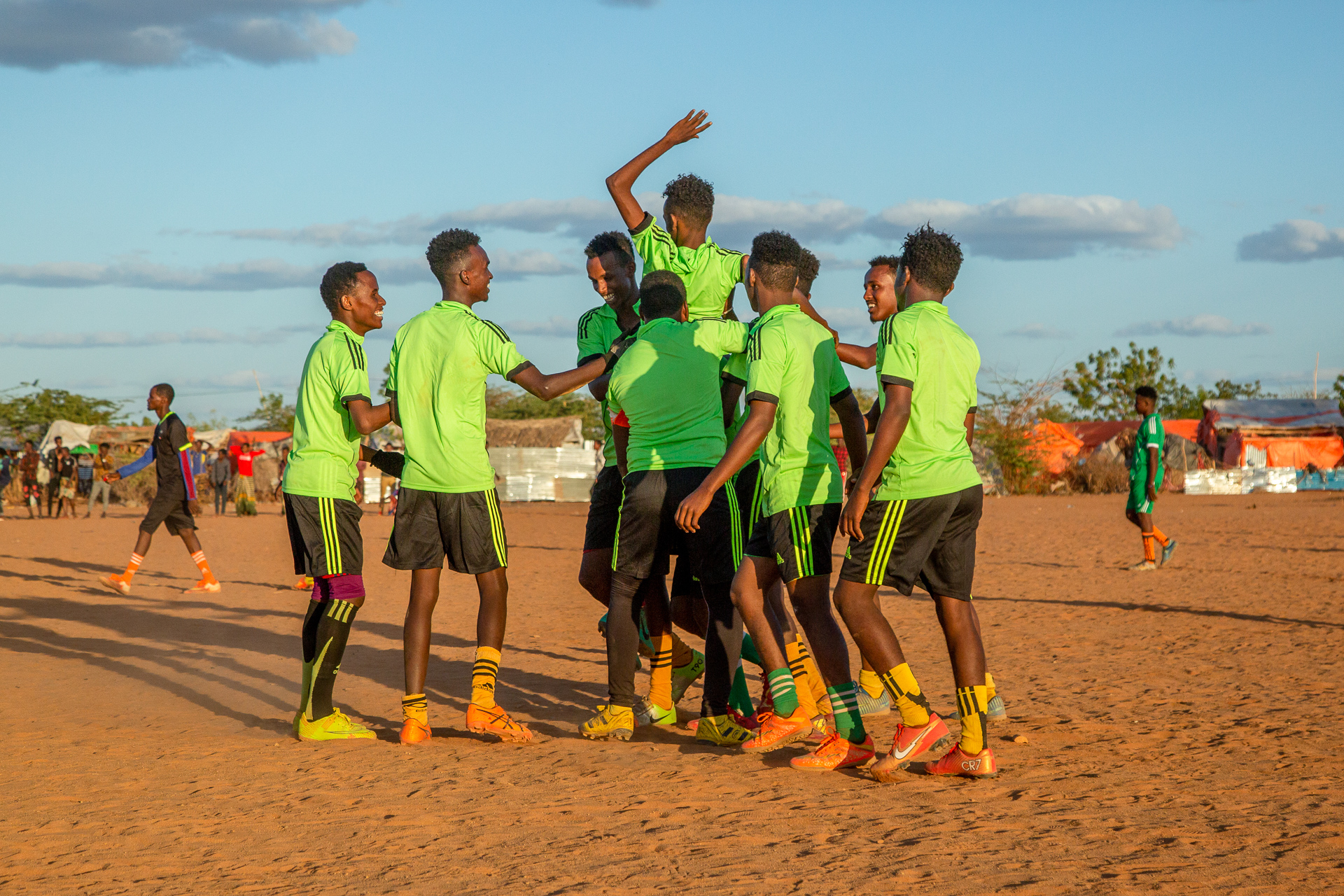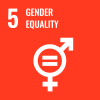Doolow, 20 Jan 2022 – It has been eight years since Gani had to make the hard decision to abandon her hometown in south-central Somalia. The 43-year-old mother could not bear to see her teenage daughters grow up knowing only conflict.
“There was persistent conflict at that time; my family decided to come here for security reasons,” says Gani, who headed with her family to the large Internally Displaced Persons (IDPs) site at Kabasa, Doolow, in the southern Gedo region.
For most of the women and girls living in Kabasa, the daily routine is housework and caring for the children. Gani knows this too well. For the past eight years, washing clothes, cooking, and fetching water was all she knew.
This changed the day in 2019 when the Women’s Participation Project (WPP) arrived in her community. Since then, Gani and other women have been busy with a wide range of community activities. “The project has improved the participation of women in the sites," Gani says. "It has built a strong bond between women and other community members, leading to a sense of collective caring without leaving anyone behind.”
The WPP, led by the International Organization for Migration (IOM), aims to positively change the role of women and girls in areas of displacement, by empowering them to play a more active, decision-making role in the site – to ensure their voices are heard and their needs are reflected in projects. In Somalia, the project is implemented in more than 150 sites across Doolow, Kismayo, and Baidoa, three districts hosting many IDPs.

The football tournament organized by women living in displacement sites in Doolow, Somalia, brought different communities closer. Photo: Foresight/IOM
Since 2019, WPP activities have included the formation of women’s groups with some 500 active members, crafts training, leadership and women’s rights, discussions on gender roles and challenges, and income-generating activities.
When COVID-19 hit Somalia, these women's groups played a key role in the fight against the pandemic in IDP sites. They organized educational sessions to spread awareness and limit the spread of the virus while also producing over 3,000 cloth face masks sold at local markets and donated to vulnerable groups.
The project also engages with men and other community leaders to discuss how the further engagement of women will benefit the whole community.
“Community members, particularly men, were educated on the importance of full participation of all genders in discussions on the rights of women and girls,” says Gani.
The project has also been life-changing for many women. Some have started small businesses such as market stalls, thus increasing their independence and improving their economic situation.

Hundreds of spectators turned out for the football tournament organized by the women's group in a displacement site in Doolow, Somalia. Photo: Foresight/IOM
The Kabasa site has become a permanent new home for thousands of families who arrived from various parts of Somalia, for the most part fleeing conflict, drought or floods. Despite some geographical or cultural differences among the population, they are united in working hard, living in peace, and providing a better future for their loved ones.
Acknowledging the importance of social cohesion, Gani and other women organized a brainstorming session to decide on potential activities to bring site residents together.
Hosting a football tournament was one idea that was well received by the group. The women thought it would not only promote integration between community members of different IDP sites, but it would also provide alternative outlets for the youth at risk and exposed to criminal activities and violence.
The women met on a weekly basis with sports officials in the district as well as youth leaders, to organize the tournament and select the football clubs that would compete.
“There were 14 active football clubs in the IDP sites, but the women managed to select eight of them without creating conflict among the players,” says Liban Abdullahi Bihi, IOM Field Assistant.

The one-week football tournament helped the physical and mental well-being of young men and boys from displacement sites. Photo: Foresight/IOM
However, not everyone understood why women were coordinating a sports event. Liban explained that women leading activities was an issue among some community members, since some considered it out of line with local culture. IOM arranged discussions with elders and other community leaders to address concerns.
“This was a unique activity because it challenged a common gender bias,” says Liban.
Eight football teams of young men from Kabasa and Qansaxley displacement sites in Doolow played a one-week tournament in front of 2,000 fans made up of IDPs and host community members.
“The football tournament meant everything to the youth living in the sites,” says Ismail, an IDP youth leader. “It was a source of interaction in the community, and a way to prevent misuse of drugs and insecurity.”
IOM provided sportswear and equipment, trophies, transport allowances for district sports officials, as well as refreshments for the teams and organizers before the match.

A trainer recruited from the community teaches the Women’s Group in Doolow how to dye fabrics using the tie-dye method. Photo: Foresight/IOM
Women also celebrated throughout by singing traditional songs and handed the trophy to the winners. For Gani, the tournament in August was an opportunity to show others that women can also be leaders in the community and contribute to stability.
“The project had demonstrated the ability of women and girls to lead and coordinate with male counterparts, as well as promoting peace and harmony within the community,” said Hassan.
Now, Gani dreams about a different future for the women and girls of her community. A future where they can be “independent economically and take part in major leadership positions in society”.
There is still a long way to go for Gani to fulfill her dream. Gender inequalities are deeply rooted in Somali society and women and girls continue to face barriers to access education, economic resources, and leadership roles.
Moreover, discrimination against women and gender-based violence (GBV) is widespread, particularly in displacement settings. According to the United Nations Population Fund, 98 per cent of women aged 15 to 49 have undergone female gender mutilation. The prevalence rate of early marriage in Sub-Saharan Africa – more specifically in Somalia – is one of the highest in the world, according to a United Nations Children's Fund report.

Women are taught income-generating skills such as mat-weaving. Photo: Foresight/IOM
Through the WPP, IOM will continue to promote the rights of women and girls in displacement sites and ensure that their needs and concerns are addressed by incorporating gender-responsive elements within future activities.
IOM is also committed to mainstream gender-based violence prevention and response in its interventions and to improve the women's participation in their communities, which can help in reducing GBV risks.
The football tournament was part of the Women Participation Project and was funded by the United States Department of State's Bureau of Population, Refugees, and Migration (PRM).
This story was written by Claudia Barrios Rosel and Adam K. James.
For more information, please contact: Adam K. James, Camp Coordination and Camp Management Programme Officer, Email: ajames@iom.int, or Claudia Barrios Rosel, Communications Officer, Email: cbarrios@iom.int




